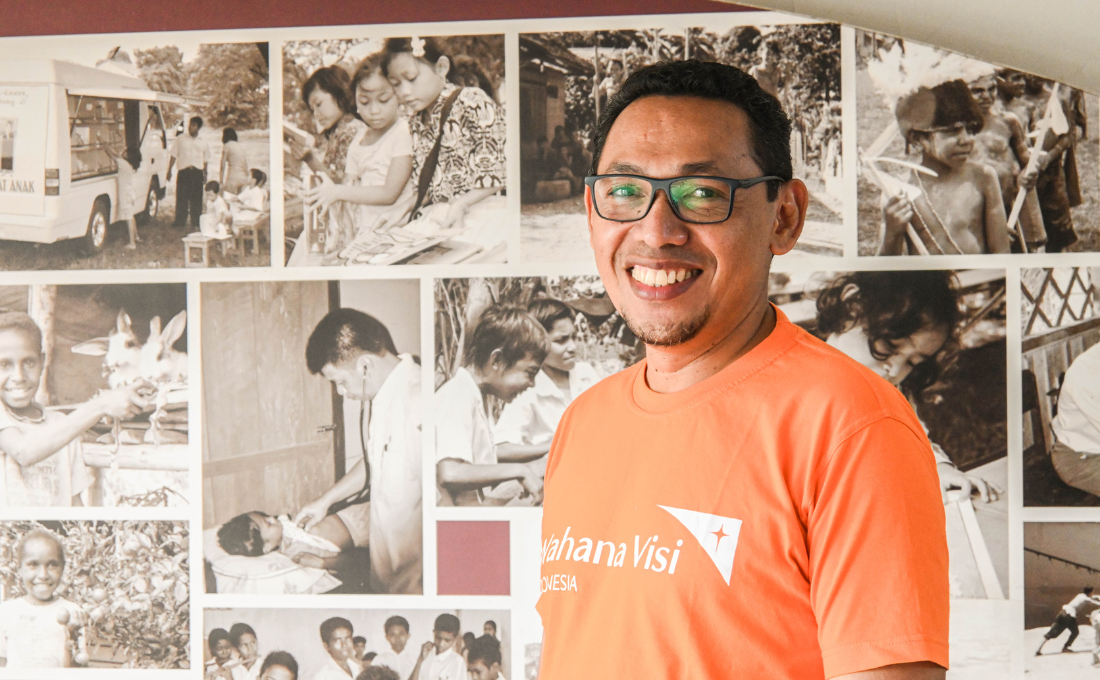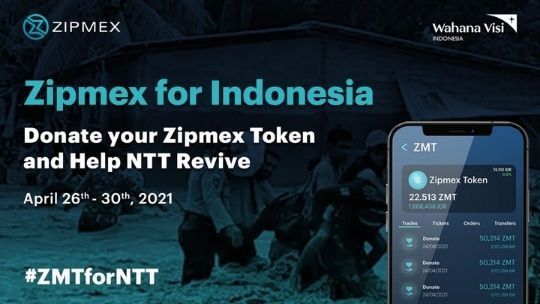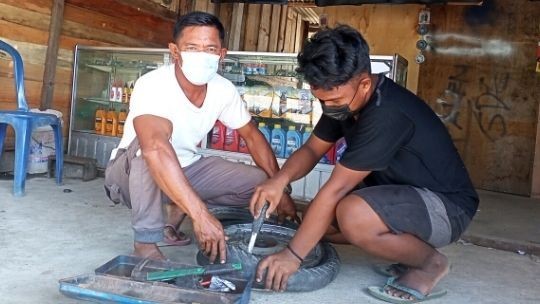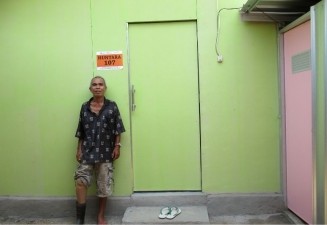The Significance of Presence in Humanitarian Work

Being present, being close and staying with the community to bring change is the essence of WVI's community development. WVI's presence in the community is realised not only through aid or facilities, but through each and every staff member. WVI staff being in the community means being present in the moments of village life, knowing the potential of the community and trying to understand the community's perspective. This builds trust with the community so that together they can embark on a journey of empowerment.
"This kind of foundation is very important and meaningful. We cannot say that the community has this problem and this capacity if we are just observing from a distance. We have to mingle with them," said Johny Noya, a WVI staff member who currently serves as General Manager for all operational offices in Sumatra, Lombok and Java. "For me, the closeness between field staff and the community is irreplaceable. Only presence can ensure this closeness," he continues.
In February 2024, Johny will have worked for WVI for 20 years. Throughout those years, Johny has remained true to the essence of community development described above. He still has the same spirit as when he decided to work for WVI. "I want to make the children and the community smile, just be happy. That has been my passion to this day," he said.
Johny started his career as a development facilitator in WVI's operational office in Pantai Kasuari. Currently, Pantai Kasuari is one of the districts in Asmat Regency, Papua. It is one of the most difficult areas to reach. At the time, Johny was a field officer who had to help children and communities in several villages. "It was a mountainous area. If I wanted to go to a village by motorbike, I could see that I would have to pass through how many more mountains to get to that village. From our office in Jayapura, I would ride a motorbike for 3-4 hours to the village, but the road was not paved and there was only one bridge with only one board of wood hanging," he says.
Tiring journeys and security threats are challenging, but they do not dampen Johny's enthusiasm. When he and the community succeeded in building a reading park for children in the village, it was worth all the hard work. As a humanitarian worker, Johny feels that the situation of children and communities in these villages is very vulnerable. There are no schools. No health facilities. Far from the city centre. So it was really only he, as a WVI worker, who was there to accompany the community and make a difference.
"People need friends. Presence shows sincerity. Our presence can make up for our lack of resources," he said. Johny has seen first-hand how even his presence can warm the hearts of the communities he serves. The operational office in Pantai Kasuari is the first office where all programme funding comes from sponsors in Indonesia. Being the first office to implement local funding is certainly not easy, but Johny is increasingly convinced that presence can overcome all obstacles.
Seeing Johny's passion for getting out and meeting children and communities, WVI enrolled Johny in the Management Trainee (MT) programme. After completing the MT programme, Johny returned to Pantai Kasuari as a Community Development Coordinator less than a year after starting his role as a field officer. He worked in Pantai Kasuari until 2009, when he moved on to various positions in WVI's Papua ministry. "There was a bishop in Pantai Kasuari who used to joke with me, saying 'don't stay here too long, you'll get sick'. Because there are also disease areas like malaria, all kinds of hepatitis and elephantiasis," he said.
After his time in Papua, Johny continued his work for WVI's operational office in Sikka Regency, East Nusa Tenggara in 2016. He served as the office manager and was tasked with completing the community development programme in Sikka. Johny was reminded of the importance of WVI's presence in the community. He said, "When we closed Sikka, the village head was crying. They said we will lose friends to talk to later. Who can we talk to, he said. Because again, we are present with them every moment. Present as strong WVI people with strong values. Present without creating chaos and successfully transferring our values.
With a wealth of experience and skills, Johny is now responsible for leading the managers of WVI's operational offices. Johny no longer lives in the village. He and his family live in Jakarta. Far from the dynamism and warmth of living with rural communities. This change has also forced Johny to make some adjustments so that he does not lose his spirit and can continue to do his job well. "I am a person who used to live in the village. I lived with the community. But I am also always reminded to think about having a bigger impact," he said, "but if there is a chance, I still want to go back to serve in the village.
Johny uses field visits as a time to replenish his passion tank as a humanitarian worker. In addition to coordination meetings with colleagues, Johny will also take time to meet with religious leaders, community leaders or local governments to keep his feet on the ground and in touch with the essence of WVI's community development work.
"When you work like this, you always have to keep yourself motivated. Because if there is no motivation, it is dangerous. The way to maintain motivation is to create or recognise the dynamics that create that motivation. Also, this kind of work takes a lot of energy, especially when you compare it to other people who might get more," says Johny.
That is why Johny always remembers the moment that motivated him. The moment came when he was at Kasuari Beach. He said, "At that time, there was a child I used to meet regularly whose body was full of a skin disease called cascado. His skin was like that from childhood. He once said to me, 'Kaka, I'm ashamed, I can't be cured'. Hearing this desperate question from a child, Johny consulted a doctor in the area. It turned out that the cure for the skin disease was to bathe twice a day and keep clean.
"So I continued to monitor this child for two weeks. I asked him to bathe twice a day and to wear clean clothes after bathing. And sure enough, his skin was cured. After a lifetime of knowing that his skin hurt, he was finally cured and he was very, very happy," Johny recalls. He clearly remembers the emotional outpouring of happiness that accompanied this moment. This important moment illustrates how a simple way, accompanied by sincerity, can transmit hope to others. This moment has become one of Johny's motivational watchwords to this day.
As he continues to grapple with the changing times and generations, Johny also wants every leader, whether in WVI or any other organisation, to prioritise value. "Gen Z is smart and the market is moving in line with this generation. The previous generation must continue to emphasise work ethic and values, but in their contemporary way. The role of the leader is to be the guardian of values. Because I still believe that working like WVI is still cool for every generation," he concludes.
Author: Mariana Kurniawati (Communication Executive)



